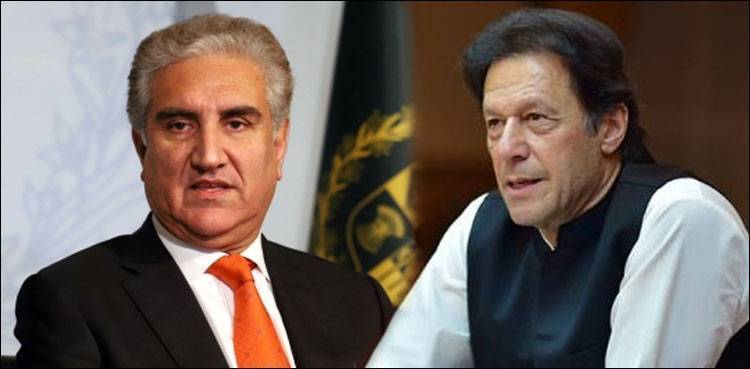Islamabad (Web Desk): The Supreme Court (SC) on Friday approved bail of former Pakistan Tehreek-e-Insaf (PTI) chairman Imran Khan and Vice-Chairman Shah Mahmood Qureshi's post-arrest bail applications in the cipher case.
The top court directed the PTI leaders to submit surety bonds worth Rs1 million each.
A three-member bench, headed by interim Chief Justice Sardar Tariq Masood and comprising Justice Athar Minallah and Justice Mansoor Ali Shah conducted the hearing.
The court said that the petition of the accused had become ineffective after the high court dismissed the said indictment which was challenged.
The petitioner could challenge the new charge-sheet before the high court if he has any objection on it, it added.
On December 13, the PTI founder and party’s Vice Chairman Shah Mahmood Qureshi were again indicted in the cipher case in Adial Jail.
Special court, established under the Official Secrets Act 2023, judge Abual Hasnat Zulqarnain framed charges against the PTI leaders.
Both politicians pleaded not guilty to their involvement in the offence related to the alleged misuse of diplomatic cable for political purposes.
This was the second time that the PTI leaders were indicted.
During today’s hearing, Justice Sardar Tariq Masood observed that the statement of a witness is taken on oath, but statement of Azam Khan the ex-principal secretary of former premier Imran, who is a key witness in the case, was taken without one.
He then inquired if an investigation was conducted regarding Azam's prolonged disappearance. Justice Minallah asked if the former principal secretary had gone on a "tour of the northern areas" too.
Referring to the National Security Council’s (NSC) meeting held over the matter during Shehbaz Sharif's tenure as premier, Justice Masood inquired why the then-premier claimed that the cipher document was missing if during the meeting it was suggested that a demarche should be issued.
Justice Masood while expressing his displeasure with the proceedings in the lower court, remarked, "Mashallah, the Islamabad High Court has already given a decision on the matter. The only job that appears to be remaining is providing [the accused] a noose."
The acting chief justice then wondered how two NSC meetings were held on the issue if the cypher was missing.
Prosecutor Raja Rizwan Abbasi maintained that a master copy of the document had been presented during the meetings.
Referring to the statement of former ambassador to the US Asad Majeed, Justice Masood said his statement does not mention that another country had benefitted.
The acting CJ clarified that the court is not justifying making the secret cipher document public, but arguing that the matter pertains to law.
Justice Mansoor Ali Shah then asked the prosecution to clarify the basis for adding the provisions of death penalty.
The prosecutor said that the cipher being waved in a public rally was sensationalised in India.
Justice Athar Minallah then countered the prosecutor's argument and asked would the treatment by the state of Baloch long march protesters will not be sensationalised.
"The enemy will benefit if bilateral relations are harmed," said Abbasi.
Responding to the prosecution’s argument that publicising the contents of the cipher ‘benefitted enemy countries’, Justice Shah said the question of utmost importance here is which enemy country benefitted from the matter?
Abbasi replied that the fiasco resulted in damaging Pakistan’s relations with the US.
At this Justice Mansoor responded that, “You’re [still] not saying which country benefitted from it.”
“From the time of Hussain Shaheed Suharwardy, how many prime ministers have been hanged to death, how many jailed, and how many disqualified?” asked Justice Minallah, further questioning the prosecution if these actions also impacted Pakistan’s relations with other countries.
“Your actions are making a mockery of this country,” Justice Mansoor Ali Shah said.
Following the arguments, the prosecutor stated that the matter before the apex court was related to the PTI leaders’ bail, adding that it was not related Article 184 (3).
The Federal Investigation Agency’s (FIA) prosecutor Shah Khawar also questioned the legislation under which the SC had the right to hear the cipher matter.
Responding to Abbasi, Justice Shah asked if his argument was that the apex court could not protect a person’s fundamental human rights? To Khawar, the judge replied that the SC even had authority under Article 187.
It is pertinent to mention that the cipher case is related to a piece of paper that former premier Imran Khan had waved at a public rally last year ahead of a vote of confidence that he lost.
Later naming the US, the PTI founder had claimed that the cipher was 'evidence' of an 'international conspiracy' to topple his government.


